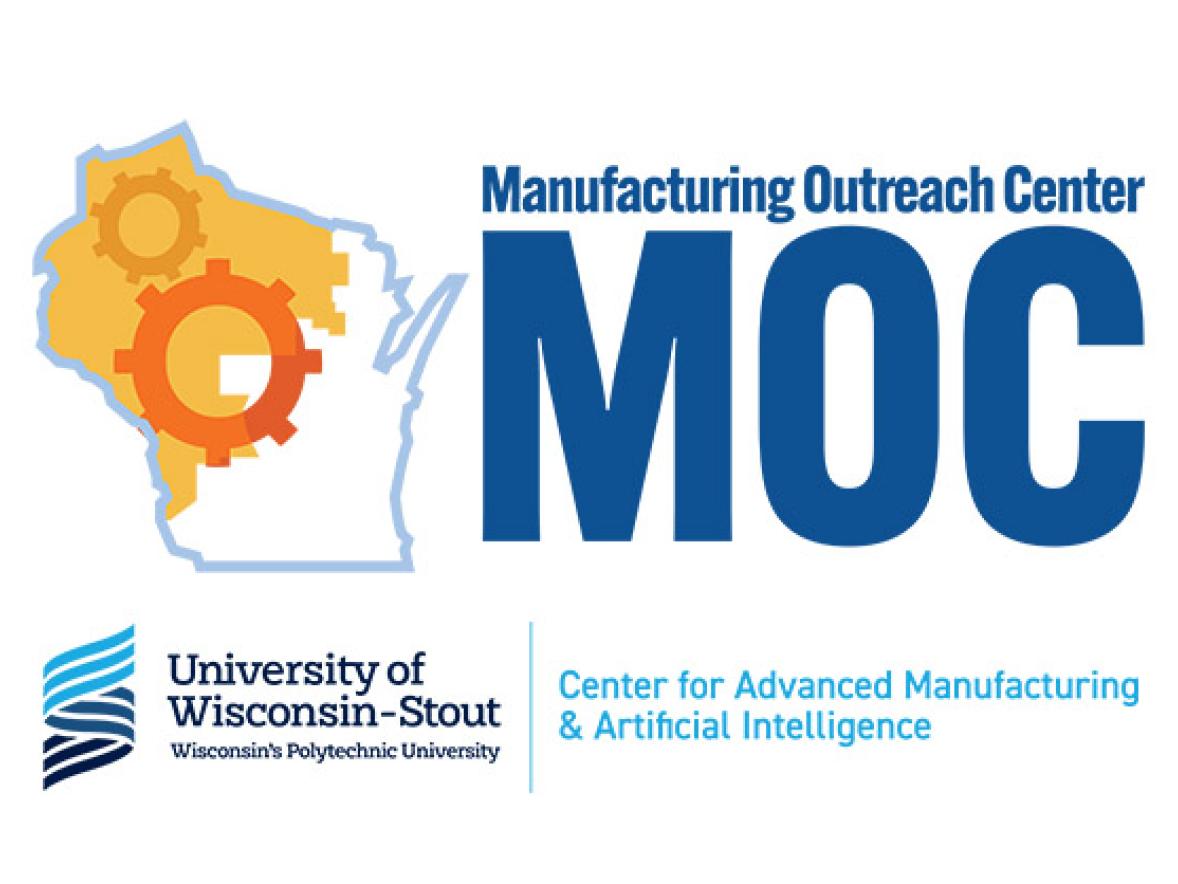As UW-Stout continues to strengthen its 360-degree approach to artificial intelligence, embedding skills across all programs, faculty experts across degree fields build on their growing knowledge with research spanning generative artificial intelligence (GenAI), machine learning, AI deep research methods and more.
Three professors – Augustine Twumasi, Cami Banger and Justin Nicholes – representing UW-Stout’s mathematics, statistics and computer science; hospitality and technology innovation; and English, philosophy and communication studies departments – demonstrate the wide range of research topics and challenges they’re tackling through AI to impact their fields and improve their students’ polytechnic experience.
The university’s AI Fellows and AI Innovation Committee, led by faculty and staff, ensures AI is embedded into learning, operations and innovation, while directing AI integration, governance, ethics and literacy. The interdisciplinary AI Fellows is supported by 2023-25 Workforce Development funding.
Read more about UW-Stout’s 360-degree approach to AI education.
Machine learning in engineering and manufacturing
Artificial intelligence and machine learning Assistant Professor Augustine Twumasi’s research broadly focuses on developing intelligent systems that integrate machine learning, optimization, and physics-based modeling to solve complex engineering and scientific challenges.
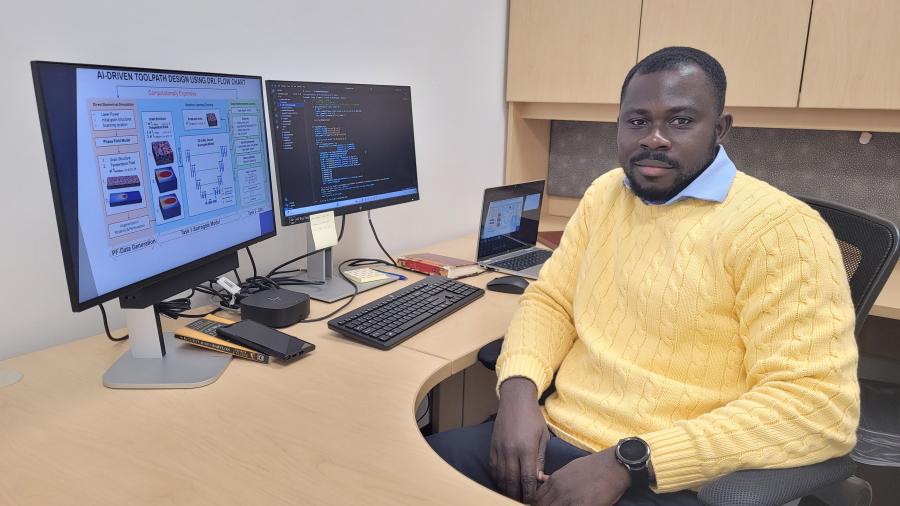
Machine learning is a subfield of AI. It is a way for computers to think, learn and act just like humans. As the term “artificial” suggests, this form of intelligence is created by humans. “Machine learning is a way we make computers intelligent and capable of performing such tasks without explicitly teaching them how to do so. It does this by identifying patterns in data,” he said.
“One aspect of my work involves robot path planning in Robotic Compact Storage and Retrieval Systems (RCSRS), where I use reinforcement learning and advanced optimization algorithms to improve retrieval efficiency and scheduling, helping robotic systems make faster and more adaptive decisions in dynamic environments,” Twumasi said.
Another major focus of his research is laser scan path design in Laser Powder Bed Fusion (L-PBF) additive manufacturing. “In this research, I apply deep reinforcement learning and physics-guided machine learning to design toolpaths that control microstructure evolution, to enhance the mechanical performance of printed parts,” he said.
RCSRS are widely used in the logistics, e-commerce, manufacturing, and warehousing industries, particularly in automated fulfillment centers, pharmaceutical inventory systems, grocery distribution and retail supply chains. The systems help optimize storage density, retrieval speed and operational efficiency.
L-PBF technology is central to aerospace, automotive, biomedical, and defense industries, where it is used to produce lightweight, high-strength metal components with complex geometries. It’s also increasingly applied in energy, tooling and custom medical implants because of its precision ability.
Twumasi’s current and upcoming projects also explore scientific machine learning, uncertainty quantification, and AI-driven modeling for smart manufacturing and logistics optimization. He hopes to soon recruit student researchers.
GenAI and business technology
Assistant Professor Cami Banger, program director of business information technology and digital marketing technology, is leading a Scholarship of Teaching and Learning (SoTL) study titled “Reimagining Assignment Design: An Exploratory Study of AI-Assisted TILT Implementation.”
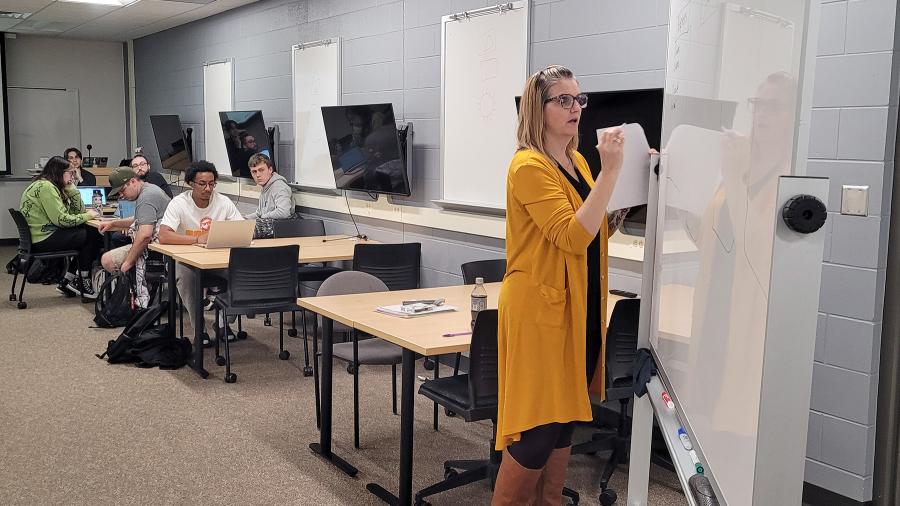
“The project explores how instructors can use generative AI to redesign assignments using the Transparency in Learning and Teaching (TILT) framework, which focuses on clarity, grading efficiency and student learning outcomes,” she said.
Banger’s AI research and teaching intersect around GenAI and its practical implementation in higher education and business technology. She has developed and is currently teaching a professional development course, AI Implementation Strategy, where students design organizational AI strategies aligned to NIST, IBM, and McKinsey frameworks. The course integrates real-world AI tools and showcases how polytechnic learning can connect strategy, ethics and technology practice.
She is incorporating AI across the business information technology and digital marketing technology programs and highlights her research in her article “Generative AI is coming to the workplace, so I designed a business technology class with AI baked in,” published in The Conversation.
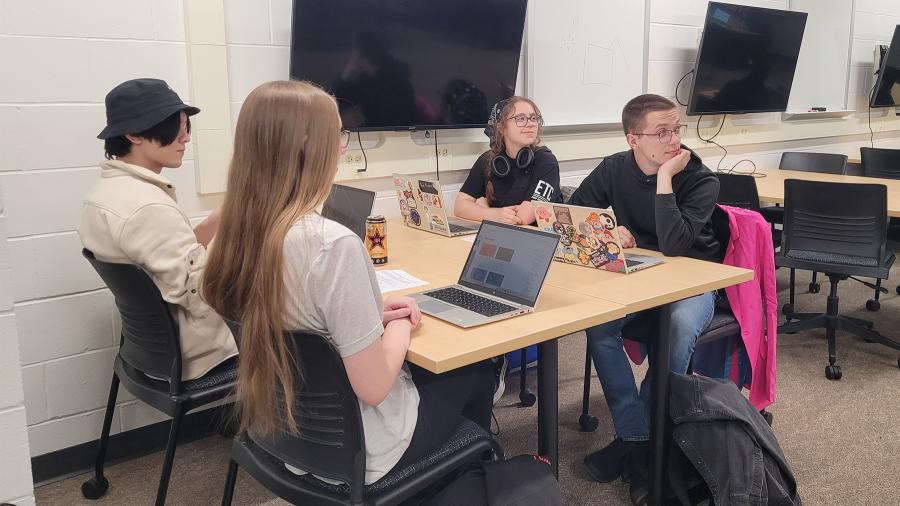
“From piloting CoPilot for Business in our capstone course and doing CRM case simulations using Salesforce with GenAI support to reflective assignments on ethical AI use in business, these projects collectively aim to equip students with hands-on experience and an applied understanding of AI in business and technology contexts, which aligns closely with Stout’s polytechnic mission,” Banger said.
Human vs. GenAI poetry
Associate Professor Justin Nicholes, director of First-Year Composition, explored “Ownership, Accuracy, and Aesthetic Merit” in human and AI-generated poetry.
His research, published earlier this year in “Written Communication,” asked the questions, Would college students judge their poems differently from those written by GenAI? Would they feel a stronger sense of ownership of their writing versus AI-generated poetry?

“With each passing semester and academic year, students’ attitudes and experiences with generative AI change,” Nicholes said. “One surprising result from my research into asking students to write with and without AI through poetry, and about autobiographical moments, is that students increasingly see GenAI as a tool that enhances their personal meaning-making. It is not enough to simply dismiss GenAI writing as a form of cheating. While some will refuse GenAI, especially for personal and creative expression, there is a role, and we need to keep trying to understand how students see GenAI tools and the writing they produce with and without it.”
For his research, Nicholes recruited 88 first-year students, who composed brief poems about meaningful or challenging life experiences, such as loss, pain, anger, disappointment or defeat. They then prompted a GenAI program, such as ChatGPT or Gemini, to compose a poem about that same event.
The students wrote poems that were more narrative, authentic, unguarded and emotionally negative in tone than the GenAI poems.
Following their writing, the students completed surveys to record their perceptions of their own poems and GenAI poems, based on ownership, accuracy and aesthetic merit. Ownership referred to whether the writing reflected an important part of the writers’ selves. Accuracy referred to whether the poem reflected their thoughts and feelings. Aesthetic merit referred to the quality of the writing, with features such as vivid imagery, a feeling of completeness, rhyme, meter, structure and form.
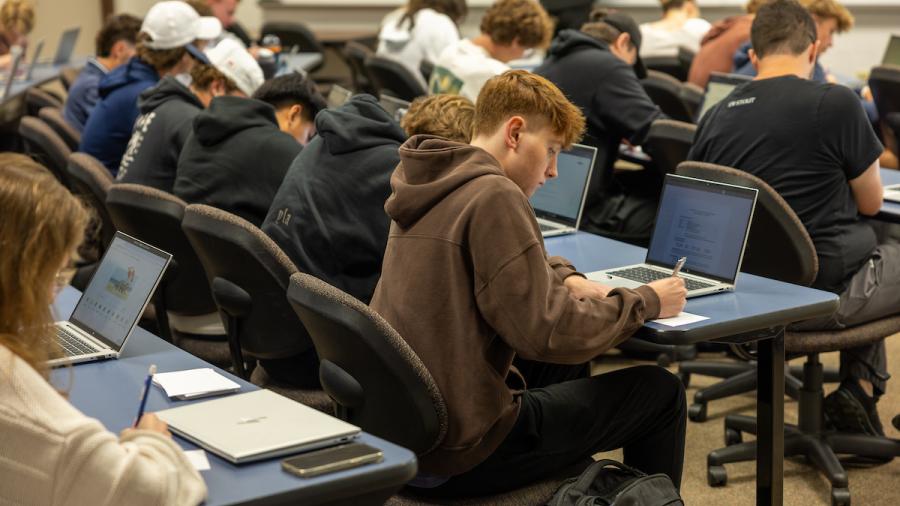
Finally, the students were asked which poem they preferred and why.
Nicholes’ findings showed that the students fairly evenly preferred their poems to the GenAI poems: 42% preferred their poems because of the personal connections to the events; 50% preferred the GenAI poems, mainly for their textual features; and 8% preferred both.
Students felt significantly greater ownership of and accuracy in their human-written poems. And while students rated aesthetic merit higher for GenAI poems, which portrayed greater imagery, language, and form, they felt the GenAI poems lacked originality.
“In terms of implications for teaching writing, meaningful literacy remains a valuable college-writing experience whereby college writers in various writing contexts have chances to create work they view as important parts of themselves, work they see as importantly conveying their life experiences and voices, and work that they see as unique contributions,” Nicholes said. “While GenAI may be used as a tool to assist in autobiographical, meaningful writing, and although it has the potential for assisting writers in ways similar to peer review processes, human creativity is a unique territory worth protecting.”





